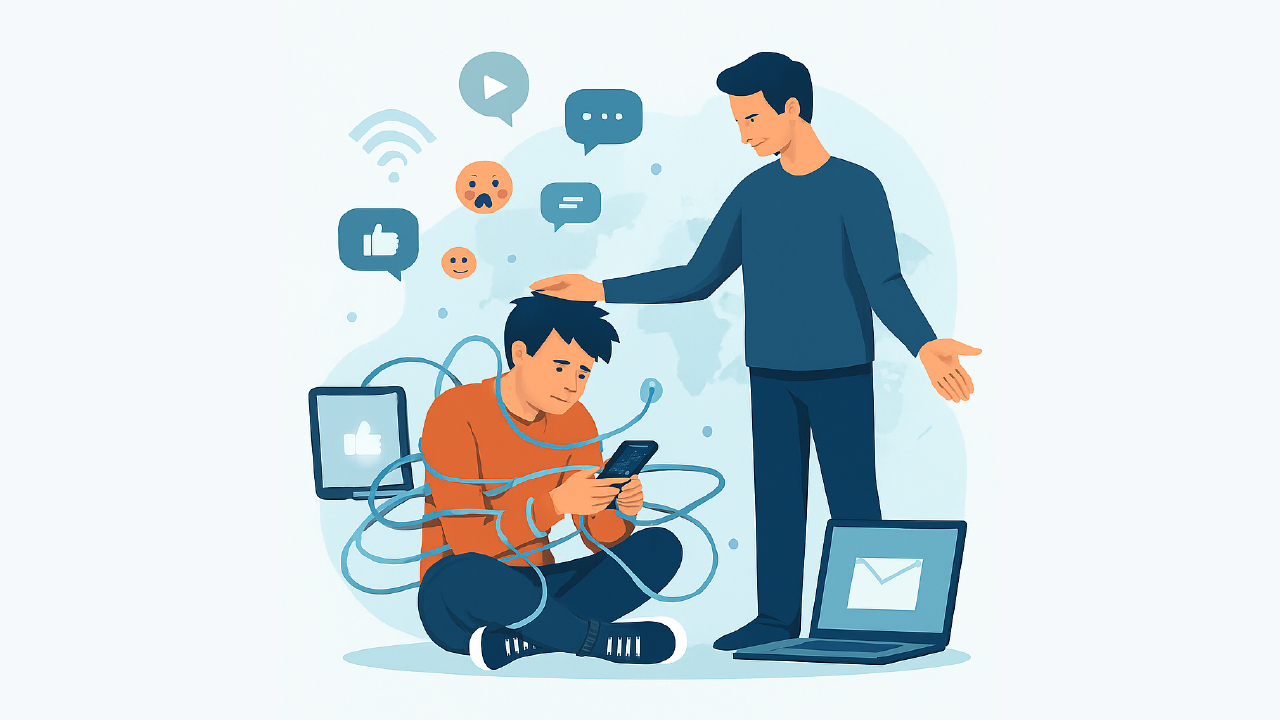
Walk into any classroom or hallway today, and you will see students with eyes fixed on their phones, laptops, or tablets. Technology is everywhere, and it is shaping how students learn, connect, and dream about the future. While the digital world offers incredible opportunities, it also raises important questions about balance, well-being, and human connection.
This is where counselors, especially career and college counselors, come in. In a hyperconnected world, counselors are not only helping students choose careers and universities. They are also guiding them to use technology wisely, balance screen time, and connect with their true aspirations.
Digital tools give students instant access to information, global connections, and resources for learning. But too much screen time can lead to fatigue, anxiety, and feelings of isolation. Studies by organizations like the Pew Research Center and WHO show that high daily screen time often correlates with sleep disruption, lower concentration, and increased stress.
The challenge is not the technology itself, but how students use it. Without reflection, digital life can become overwhelming. With guidance, it can be a tool for growth.
Counselors play a crucial role in turning digital risks into opportunities for resilience. Unlike apps or online platforms, counselors bring empathy, context, and perspective. They help students:
This human guidance is what makes counseling unique. In a world of algorithms and notifications, students need real conversations that help them grow into balanced, thoughtful young adults.
Career and college counselors are uniquely positioned to connect digital well-being with life and career goals. Here are some ways they can make a difference:
Counselors in the IC3 Movement often share stories of how small, consistent interventions transform students’ digital lives. A reflective conversation helps one student realize the importance of offline hobbies. A career exploration exercise shows that their screen time can be redirected toward online courses or skill development.
Through IC3 Regional Conferences, IC3 On Demand, and the Annual IC3 Conference & Expo, counselors come together to exchange such reflections. These events highlight the power of human guidance in helping students navigate technology without losing sight of their dreams. The focus is not on removing devices but on equipping students to use them with purpose.
Schools that embed counseling at the heart of education policy and practice are best placed to address digital challenges. Digital resilience grows when counselors lead initiatives like:
When students see that their school prioritizes both academic success and digital well-being, they feel more supported and confident.
Digital addiction is not the end of the story. With the presence of caring, trained counselors, technology can shift from being a source of stress to a springboard for growth. Students can learn to explore online opportunities while maintaining their health, focus, and sense of self.
The IC3 Movement’s community of educators and universities continues to show that guidance is the bridge between hyperconnectivity and human connection. In this balance lies the real promise of education in the 21st century.
In a world that never logs off, counselors remind students that they do not have to face the digital tide alone. Human guidance offers perspective, balance, and hope. By helping students reflect on their digital habits, connect with meaningful goals, and prepare for careers with resilience, counselors are shaping a generation that can thrive in both digital and human worlds.
The need is not to step away from technology, but to step toward guidance. With counselors leading the way, the future of students in a hyperconnected world looks not just connected, but truly grounded.
.jpg)